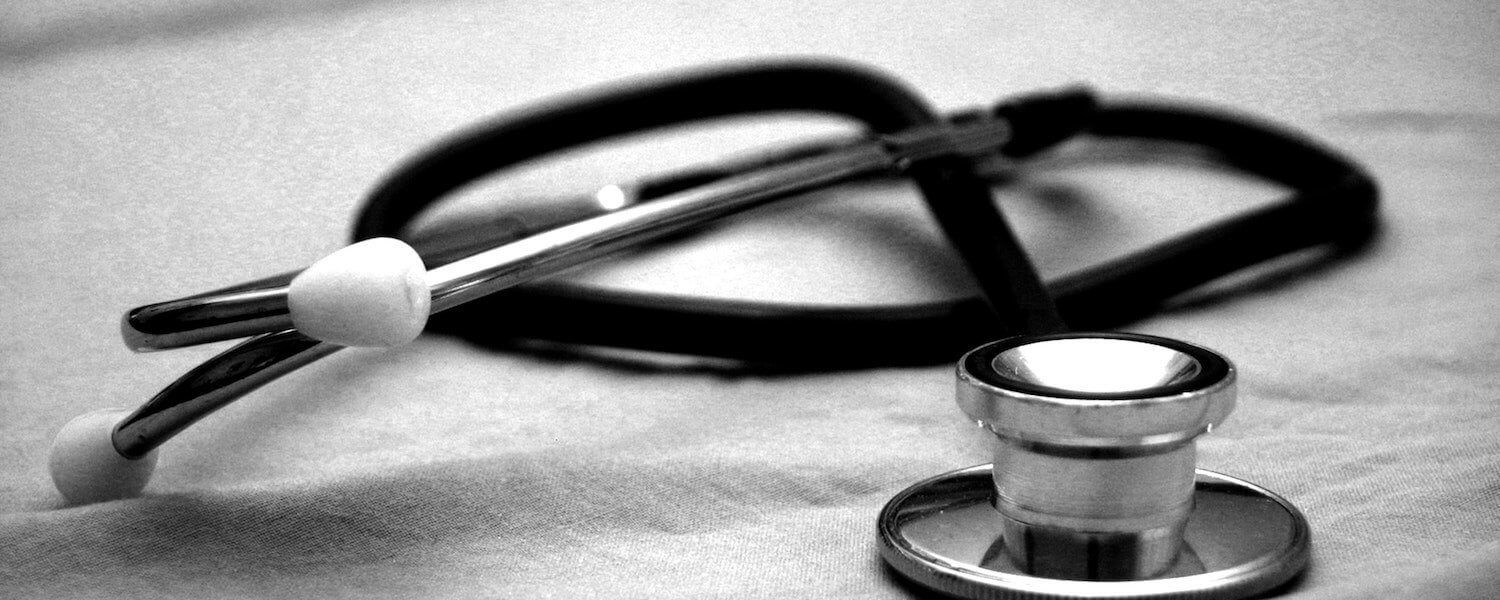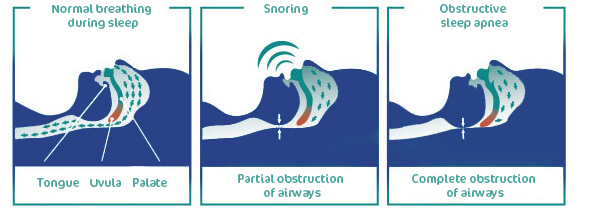Sleep apnea: Causes

This article will look at what causes obstructive sleep apnea, which is the most common type, accounting for 90% of cases. This condition is characterised by a high frequency of micro awakenings throughout the night. Micro awakenings result in non restorative sleep, which has a negative impact on overall health.
Sleep apnea: Anatomical causes
Obstructive sleep apnea consists of total obstruction of the upper airways, preventing a person from breathing while asleep. It can have a number of anatomical causes:
- Deviated nasal septum, which reduces air flow via the nose
- A palate shape that complicates inhalation
- Large tonsils or tongue, which interrupts air flow during the night
- Slack throat muscles, which reduces or prevents air from entering the throat. This is often seen in elderly people, who naturally have less muscle tone.
50% of people with sleep apnea have a Body Mass Index (BMI) over 30. The walls of the throat in a person carrying excess weight are thicker than in those of average weight, reducing air flow.
Sleep apnea is two to three times more common in men than in women up to 60 years of age. From this age onwards, women are as likely to suffer from sleep apnea as are men. This is due to sex differences in ventilatory response, airway structure and body composition, more specifically, men have more adipose tissue around the neck than women.

Sleep apnea: Genetic causes
Studies have shown that genetics are an important factor in sleep apnea. If one of your parents has sleep apnea, you’re up to twice as likely to suffer from the condition. This is due to the genetic component in craniofacial morphology.
Positional sleep apnea
Sleeping on your back increases the number of breathing events by as much as 50%. In this position, the lower jaw and the tongue slide backwards when you fall asleep and your muscles relax. This blocks the airways so air cannot flow into the lungs. Some people only have breathing events when they sleep on their back. This is known as exclusive positional obstructive sleep apnea (ePOSA).
Sleep apnea: Aggravating factors
There are a few factors that can aggravate sleep apnea. Age is one factor that increases the risk. People aged over 65 years are two to three times more likely to suffer from the condition. This is because with age the throat muscles tend to slacken, making it more difficult for air to flow through the throat and into the lungs.
Lastly, alcohol and certain types of medication such as anti-anxiety drugs and sleeping pills aggravate sleep apnea. This causes the throat muscles to slacken. As we have seen, a loss of tension in these muscles interrupts air flow, prompting breathing events.
To sum up, sleep apnea is a condition that consists of repeated breathing events throughout the night. The person is woken by the lack of air and waking restores muscle tension allowing them to breathe normally again. These awakenings have a negative effect not only on sleep, causing fragmented sleep phases, but also on overall health. For these reasons, diagnosis is vital and it starts with being aware of the symptoms.
Main takeaways
What is obstructive sleep apnea?
OSA consists of the total obstruction of the upper airways, preventing a person from breathing during sleep.
What are the anatomical causes of OSA?
Deviated nasal septum, palate shape, large tonsils or tongue, slack throat muscles, and high Body Mass Index (BMI).
What else can cause OSA?
In addition to anatomical causes, OSA can also be rooted in genetics and sleeping position
Are there any factors that aggravate OSA?
Age is one aggravating factor for OSA, becoming more common from 65 years of age. Lifestyle factors such as alcohol consumption and medication taking can also exacerbate OSA.
Discover your sleeper profile with this sleep test
Start



